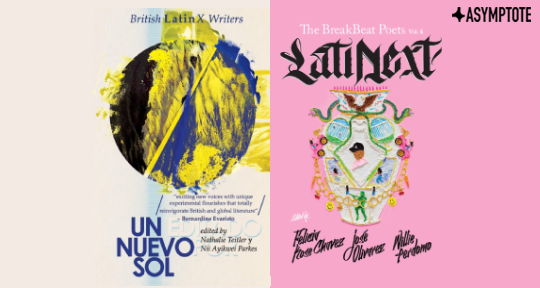This week, our writer’s bring you the latest news from Japan, Slovakia, Sri Lanka, and Central America. In Japan, renowned writer and symbol of the #MeToo movement Shiori Ito is poised to reach a wider international audience with the forthcoming translation of her memoir, Black Box , and was named one of the “100 Most Influential People of 2020” by Time Magazine. In Slovakia, three prominent Slovak writers feature in a new interactive map made by University College London and Eva Luka was named as winner of the national poetry award. In Sri Lanka, October’s National Reading Month has begun, with winners of the recently announced literary awards selling fast. And in Central America, Guatemalan poet Giovany Emanuel Coxolcá Tohom won the Premio de Poesía Editorial Praxis, whilst José Luis Perdomo Orellana took home Guatemala’s most prestigious literary prize, the Miguel Ángel Asturias National Prize in Literature. Read on to find out more!
David Boyd, Editor-at-Large, reporting from Japan
In September, Time Magazine named Shiori Ito one of the “100 Most Influential People of 2020.” Ito is a journalist, activist, and renowned symbol of Japan’s #MeToo movement, who—in the words of sociologist Chizuko Ueno—“has forever changed life for Japanese women with her brave accusation of sexual violence against her harasser.” Ito’s account of her experiences, Black Box, which was first published in Japanese in 2017 by Bungei Shunju, is due to be published next year in an English translation by Allison Markin Powell, whose previous translations include The Ten Loves of Nishino by Hiromi Kawakami and The Boy in the Earth by Fuminori Nakamura. Powell’s translation of Ito’s work will be published by Tilted Axis Press in the United Kingdom and Feminist Press in the United States.
Since the book’s publication in 2017, Powell says, “Ito’s message seems only to have grown more important, more urgent. Black Box is not a rape memoir. It’s a manifesto to tear down the system. Ito methodically maps out the ways in which institutions failed her, and how almost everyone attempted to gaslight her at each stage. Her perseverance is an inspiration.”
On her own experience working to bring Black Box into English, Powell says, “I’ve had to develop strategies so as not to take on too much of the trauma myself.”
In August, Ito sued LDP member Mio Sugita, “claiming that [Sugita’s] repeated ‘likes’ of tweets abusing her character constituted defamation,” as reported in The Mainichi. Sugita, who is known for having called the LGBT community “unproductive” in the past, has this month courted controversy once again, by admitting that she said “women lie” about sexual assault, after initially denying having made such a remark. As noted in The Japan Times, Sugita’s party was “slow and lukewarm” in their response. The lawmaker has not faced any penalties. READ MORE…



